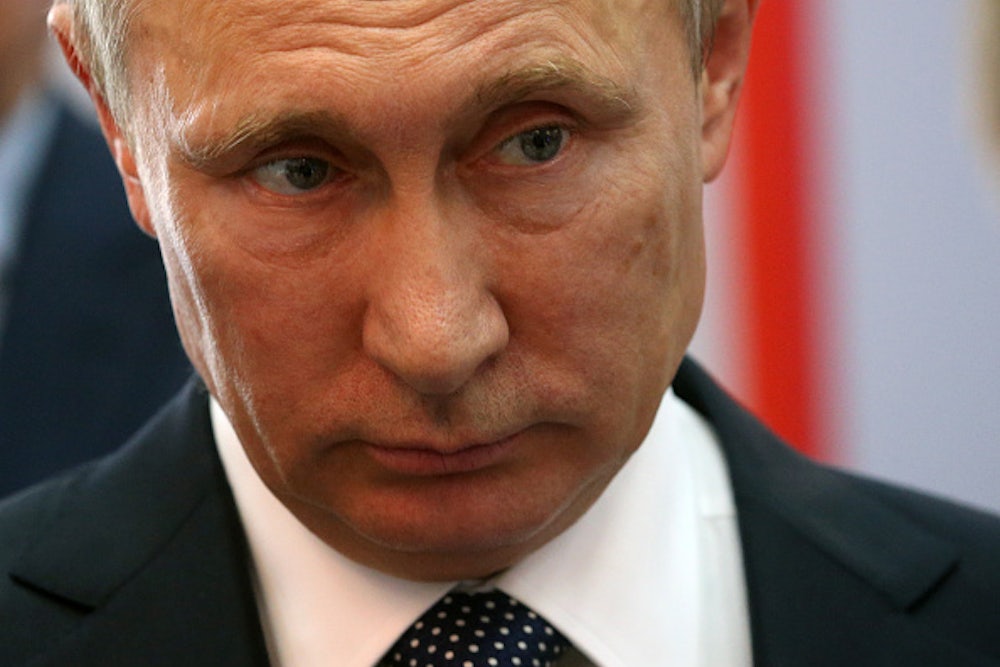The reason his appearance on Russia Today this week was significant was not only because he told Larry King that it was “pretty unlikely” that Russia had links to recent cyberattacks on the U.S. election system. The network may masquerade as a BBC-esque news organization that is increasingly global and multilingual, but it is in fact one of the most important tools of international propaganda in Vladimir Putin’s arsenal—the centerpiece of the Kremlin’s $300 million-per-year campaign to weaponize information.
In contrast to the Glasnost era of the late nineties in which the press and the public enjoyed unprecedented freedom of expression, Putin brought the major Russian channels, including Channel One and Russia One, under state control. “To Putin, television was the only way to get his message across while retaining full control of that message,” writes Julia Ioffe. He signed off on the creation of RT, and required the channels’ editorial directors to meet with administration officials who provided orders on “whom to attack and whom to defend, who is allowed on TV and who is banned, how the president is to be presented, and the very language and categories the country thinks and feels in,” writes Russia expert Peter Pomerantsev.
Kremlin military and intelligence thinkers have long discussed freedom of information “in weaponized terms, as a tool to confuse, blackmail, demoralize, subvert, and paralyze,” Pomerantsev writes. In contrast to traditional propaganda that attempts to persuade, Russia’s media aims to “disorganize the enemy by spreading conspiracy,” disseminating falsehoods, and spreading confusion, he adds.
Putin himself publicly acknowledged this form of soft power in 2012, describing it as “a matrix of tools and methods to reach foreign policy goals without the use of arms but by exerting information and other levers of influence.”
In accepting an interview with RT, Trump essentially embraced Putin’s mouthpiece—even if it was unwittingly. His campaign backpedalled on Friday, claiming that Trump would not have agreed to the interview had he known it would be aired on RT. Nevertheless, it should be noted that Trump’s media strategy does not differ much from that of Putin: With a constant barrage of free-wheeling press conferences and explosive tweets, he has managed to disorient the existing media space and spread disinformation.
